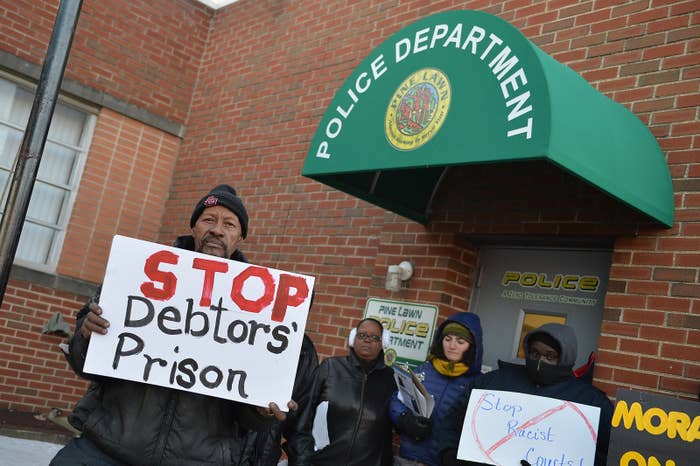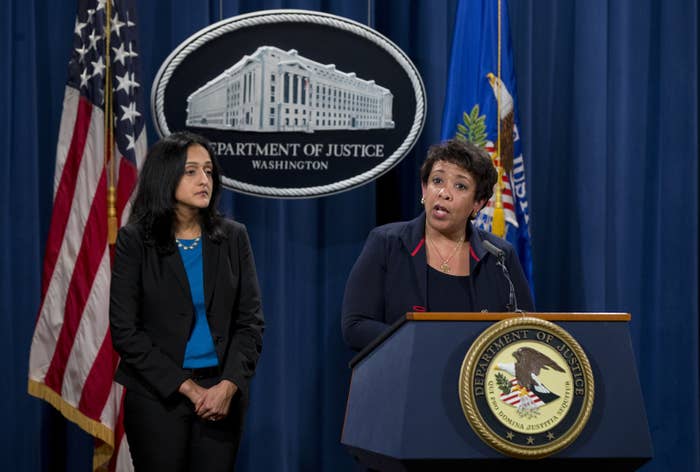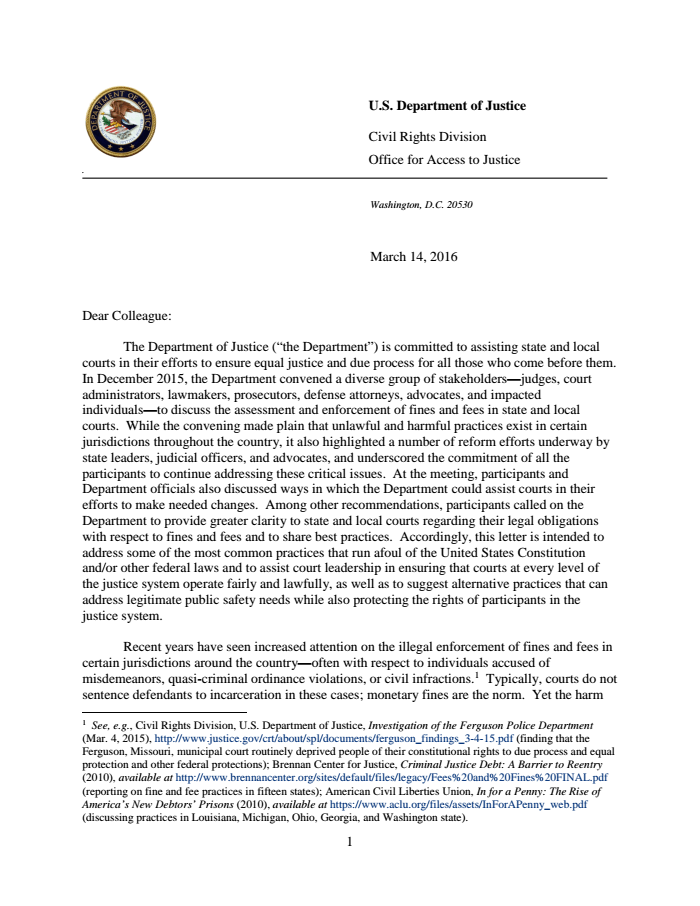
The Justice Department on Monday called on state court officials to stop imprisoning defendants who fail to pay fines or court fees, slamming the practice as unconstitutional, profit-motivated, and unfairly burdensome on the poor.
In a strongly worded letter to state court chief justices and administrators, Vanita Gupta, the head of the DOJ's Civil Rights Division, and Lisa Foster, director of the Office for Access to Justice, criticized the use of arrest warrants as a means to collect fees.
"In addition to being unlawful, to the extent that these practices are geared not toward addressing public safety, but rather toward raising revenue, they can cast doubt on the impartiality of the tribunal and erode trust between local governments and their constituents," she wrote.
The practice of jailing defendants for failing to pay fines for misdemeanors or civil infractions received national attention when federal officials probed the justice system in Ferguson, Missouri, after the police shooting death of Michael Brown. The DOJ found Ferguson officials “have consistently set maximizing revenue as the priority” for law enforcement, with the city drawing significant revenue from such fines. A BuzzFeed News investigation published last year found that some judges in Texas sent teenagers to jail for missing school and illegally jailed adults for unpaid traffic fines.
Inability for low-income residents to pay such fines traps those individuals in "cycles of poverty," Gupta and Foster wrote: "Individuals may confront escalating debt; face repeated, unnecessary incarceration for nonpayment despite posing no danger to the community; lose their jobs; and become trapped in cycles of poverty that can be nearly impossible to escape."

“The consequences of the criminalization of poverty are not only harmful – they are far-reaching,” Attorney General Loretta Lynch said in a statement. “They not only affect an individual’s ability to support their family, but also contribute to an erosion of our faith in government."
In their letter, the federal officials outlined several "basic constitutional principles," including the need to determine that a failure to pay a fine was willful before jailing a defendant. Furthermore, they urged courts to consider alternatives to incarceration, including a payment extension, reduction in the debt, or imposing community service.
Last month, Lynch announced federal officials would sue Ferguson to force long-discussed changes in the policing and justice system there. “They waited decades for justice,” Lynch said. “They should not have to wait any longer.”

